Did Yeltsin’s tenure of corruption and cronyism give rise to Putin?
Or did the Russian president offer a glimpse of liberal democracy? Thirty years on from the collapse of the Soviet Union, Mick O’Hare considers the fall-out from the failed coup of August 1991
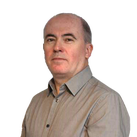
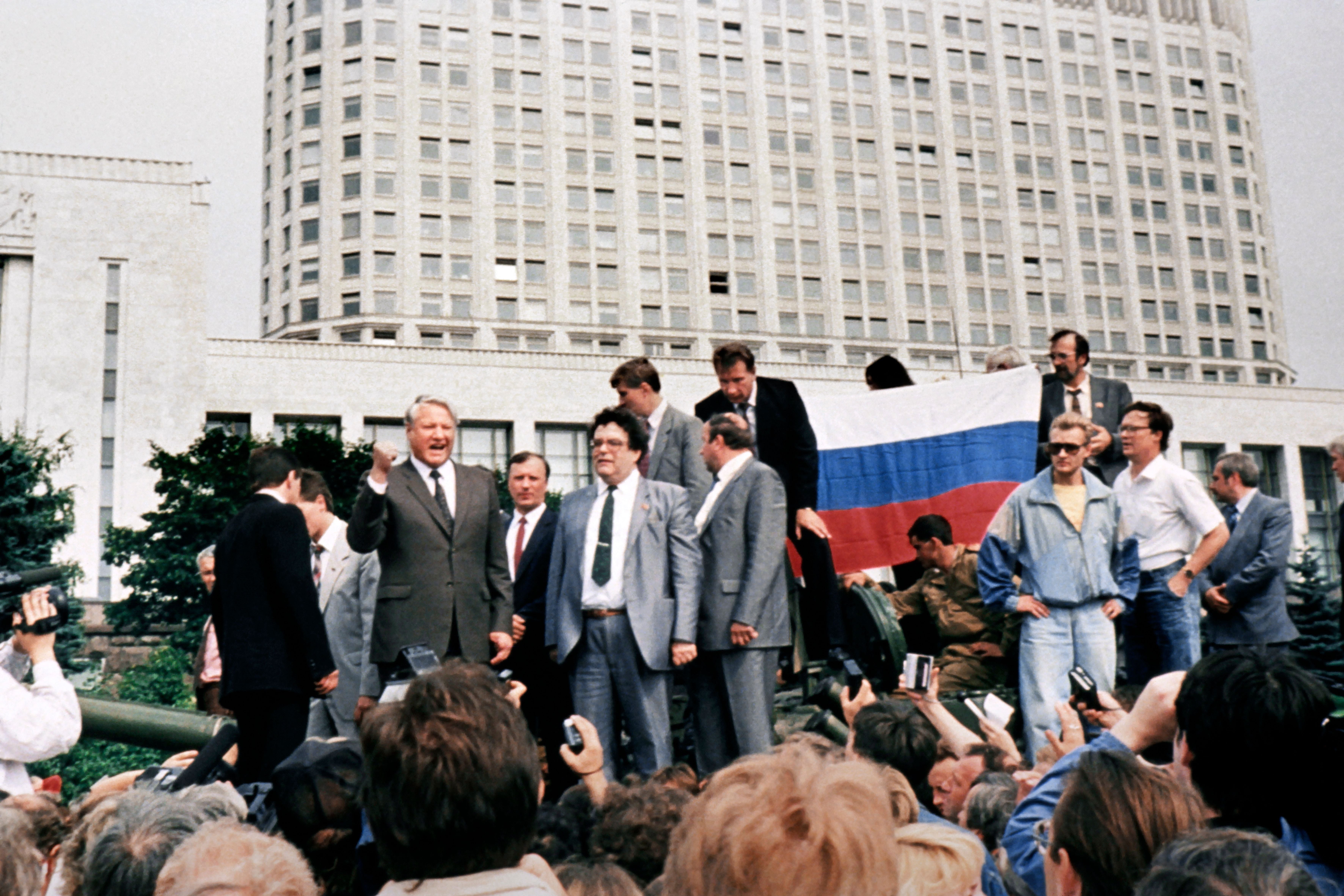
On the afternoon of 18 August 1991 a delegation of Soviet Union government officials arrived at the holiday dacha of Mikhail Gorbachev, president and Communist Party general secretary, at Foros on the Black Sea. In late July, Vladimir Kryuchkov, head of the security agency, the KGB, had recorded Gorbachev speaking with political rivals. The Soviet Union had been under increasing strain throughout the year with rioting in dissident republics, and ethnic and religious minorities demanding autonomy or independence from Moscow. Gorbachev had been discussing plans for a restructuring of the Soviet system in order to save the union – strengthening the republics and reducing the power of Moscow – and who would have to be removed from government to achieve it.
His opponents were communist hardliners who feared – correctly as it transpired – the destruction of the Soviet Union and as a consequence its control over a huge swathe of Europe and Asia. The hardliners hadn’t taken kindly to Gorbachev’s twin totems of glasnost (openness) and perestroika (restructuring of the Soviet command economy and government). Kryuchkov was one of that cohort as was Dmitry Yazov, the defence minister, to whom he gave the recording.
Earlier that year Soviet troops had stormed the Lithuanian parliament and other government buildings in an attempt to bring the republic, which had declared independence the previous year, into line. It later turned out that Gorbachev had known nothing about it. Instead the order to send troops into Lithuania had been given by the same hardliners now at his front door. They had been plotting against him for the best part of a year and now, after recording Gorbachev cavorting with people they considered enemies of the state, realised they had to move rapidly.
They believed the economic upheaval the country was experiencing as Gorbachev’s market reforms worked their way through the system – marked by low wages, inflation (approaching 300 per cent per annum), food and medicine shortages – would ensure they had the backing of the populace. The recording hinted that the new measures would be signed into law on 20 August – they had to strike quickly.
Gorbachev was told to declare a state of emergency or resign in favour of Gennady Yanayev, the vice-president, who had been recruited to the hardliners’ cause. The dacha resounded to threats, insults and swearing. Gorbachev later said he had told his family their lives could be in danger but he refused to compromise with the plotters – the latter insist he was more equivocal. Either way he is reputed to have dismissed them saying: “Let’s see who proves the most popular, me or you.” None of them realised that, in the end, it would be neither. The plotters flew back to Moscow to launch their coup d’etat while KGB agents surrounded Gorbachev’s residence.
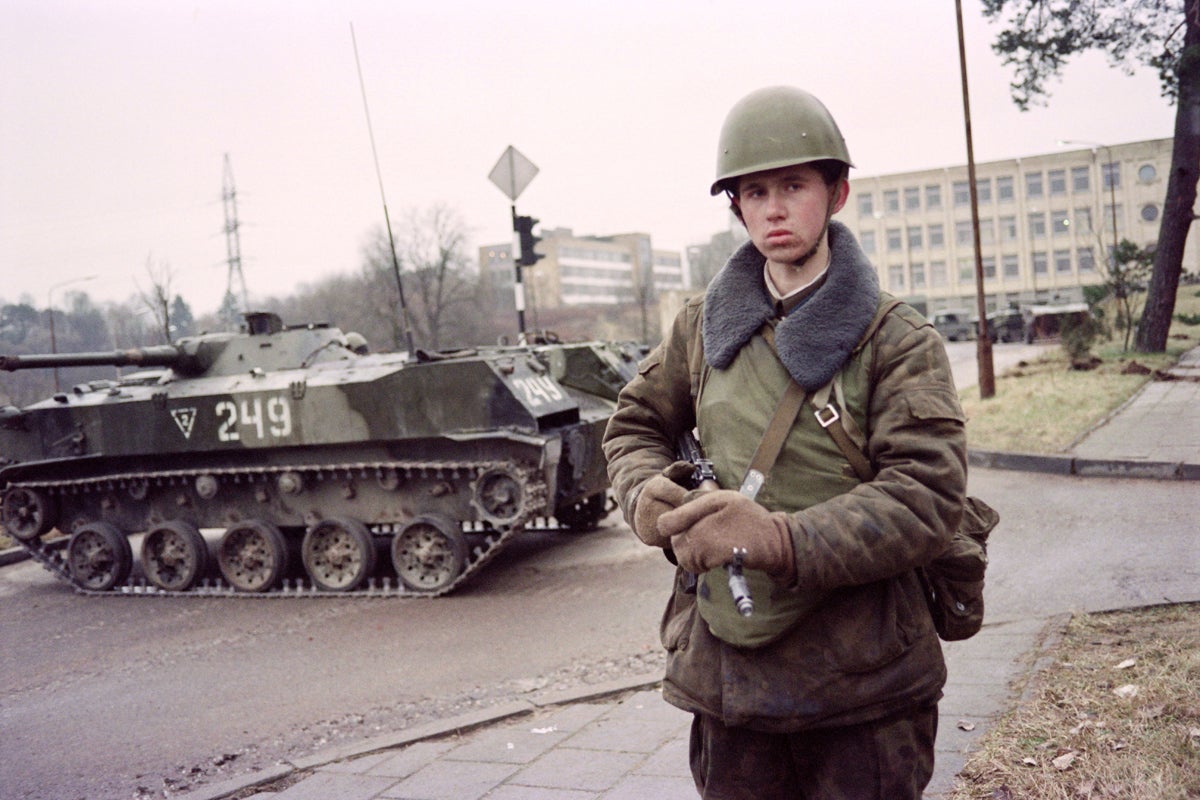
The State Committee on the State of Emergency was convened and led by Yanayev, Kryuchkov, Yazov and prime minister Valentin Pavlov. They declared that “the honour and dignity of the Soviet man must be restored”.
They were supported by, among others, internal affairs minister Boris Pugo, defence council deputy Oleg Baklanov and head of Gorbachev’s secretariat Valery Boldin plus, crucially, sections of the military including commander of Soviet Airborne Forces Pavel Grachev and military advisor Marshal Sergei Akhromeyer. Gorbachev, the nation was told, was seriously ill. KGB deputy chairman Viktor Grushko began to implement martial law and the KGB’s Lefortovo prison was cleared so opponents could be incarcerated. Tanks and troops surrounded public buildings in Moscow and other cities. Independent media establishments were closed. As ever, in such circumstances, the ballet Swan Lake was played repeatedly on television. The old guard was rallying. It seemed like the end of glasnost and perestroika was at hand.
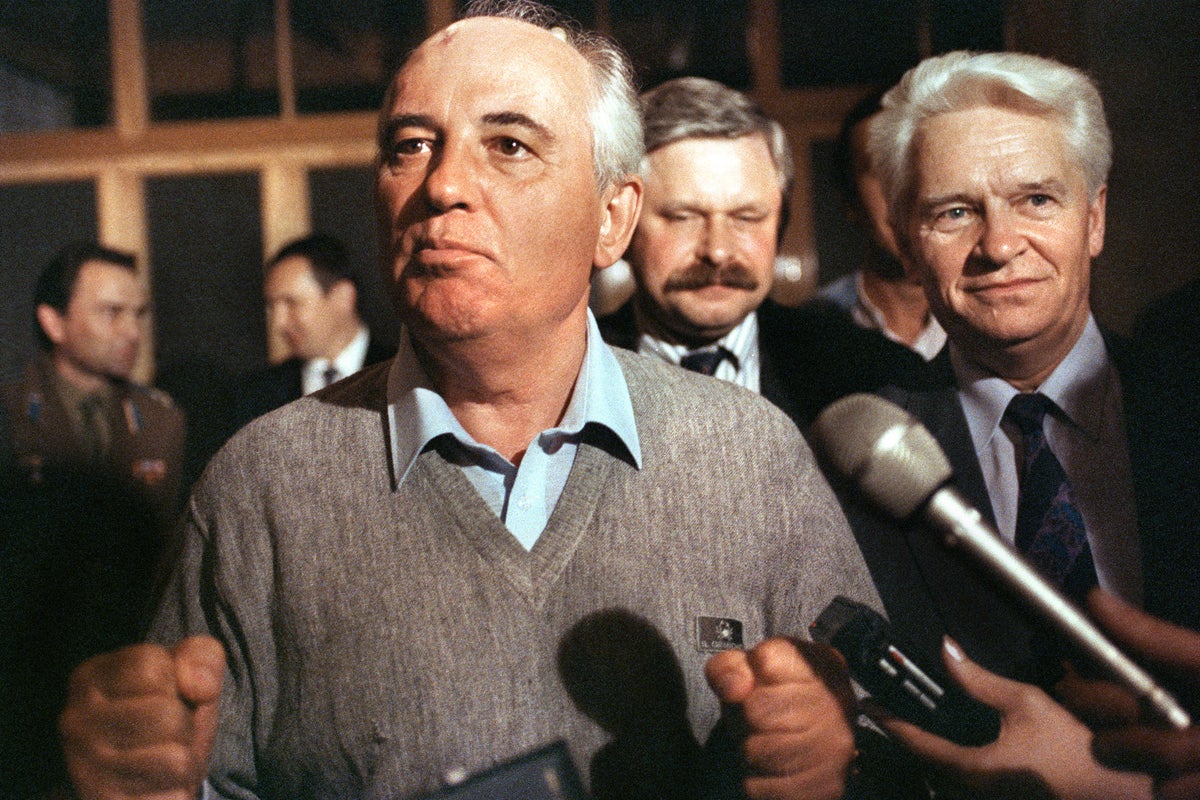
But Gorbachev’s reforms had already loosened ties with the past. His new legislature, the Congress of People’s Deputies, had offered limited democracy to the Soviet people for the first time since the revolution in 1917. Human-rights activist and long-standing dissident Andrei Sakharov won a seat, as did a politician many had not yet heard of – Boris Yeltsin. Yeltsin was one of the voices on the recording Yanayev had made.
By 1991 Yeltsin, once a loyal member of the Soviet Union politburo under Gorbachev, had renounced both that position and his Communist Party membership to run for the chairmanship of the Russian Republic after free elections were allowed for the first time under perestroika. Russia was, of course, the largest of the Soviet republics and Yeltsin garnered huge public support, eventually becoming its president (the first democratically elected leader in Russian history). When he proclaimed Russian sovereignty, facing down the might of the Soviet Union, he became the de facto challenger to the waning power of Gorbachev. The political protégé was now more popular than the mentor.
Perhaps the greatest error the conspirators made was demanding Russian soldiers move against Russian citizens
The coup leaders expected support from ordinary citizens. They were mistaken. People living outside the bigger conurbations were more generally supportive of the hardliners, but it was those living in cities the conspirators needed to convince. And it became apparent that urban and, indeed, urbane citizens, freed from old notions of inflexible government by Gorbachev’s reforms, largely opposed the coup.
Certainly they were acutely aware of the unrelenting food and medicine shortages but everybody knew the Communist Party’s politburo ate and lived well. Its members might have overthrown Gorbachev but they were still the status quo. They were not prepared to see one leader deposed only to be replaced by others from the same government who had already made their lives a misery. “It wasn’t a case of one or the other,” says Muscovite Yuri Semenov who lived through the coup. “We didn’t want either.”
Yeltsin, ever the opportunist, seized his moment. An arrest warrant had already been issued in his name, but it was still a calculated risk to openly oppose the coup. If he failed he would likely have been imprisoned or executed. But he was a man emboldened with the popularity he’d attained as he rose to power. Democrats had begun to gather at the imposing Russian parliament building on the Krasnopresnenskaya Embankment of the Moskva River, facing down the military, and on 19 August Yeltsin created one of the abiding images of the downfall of the Soviet Union by clambering atop a tank outside parliament and, on television, addressing the crowd. His speech “To the citizens of Russia” unequivocally opposed the putsch. He demanded Gorbachev’s release. It was, to purloin a phrase, Yeltsin’s finest hour.
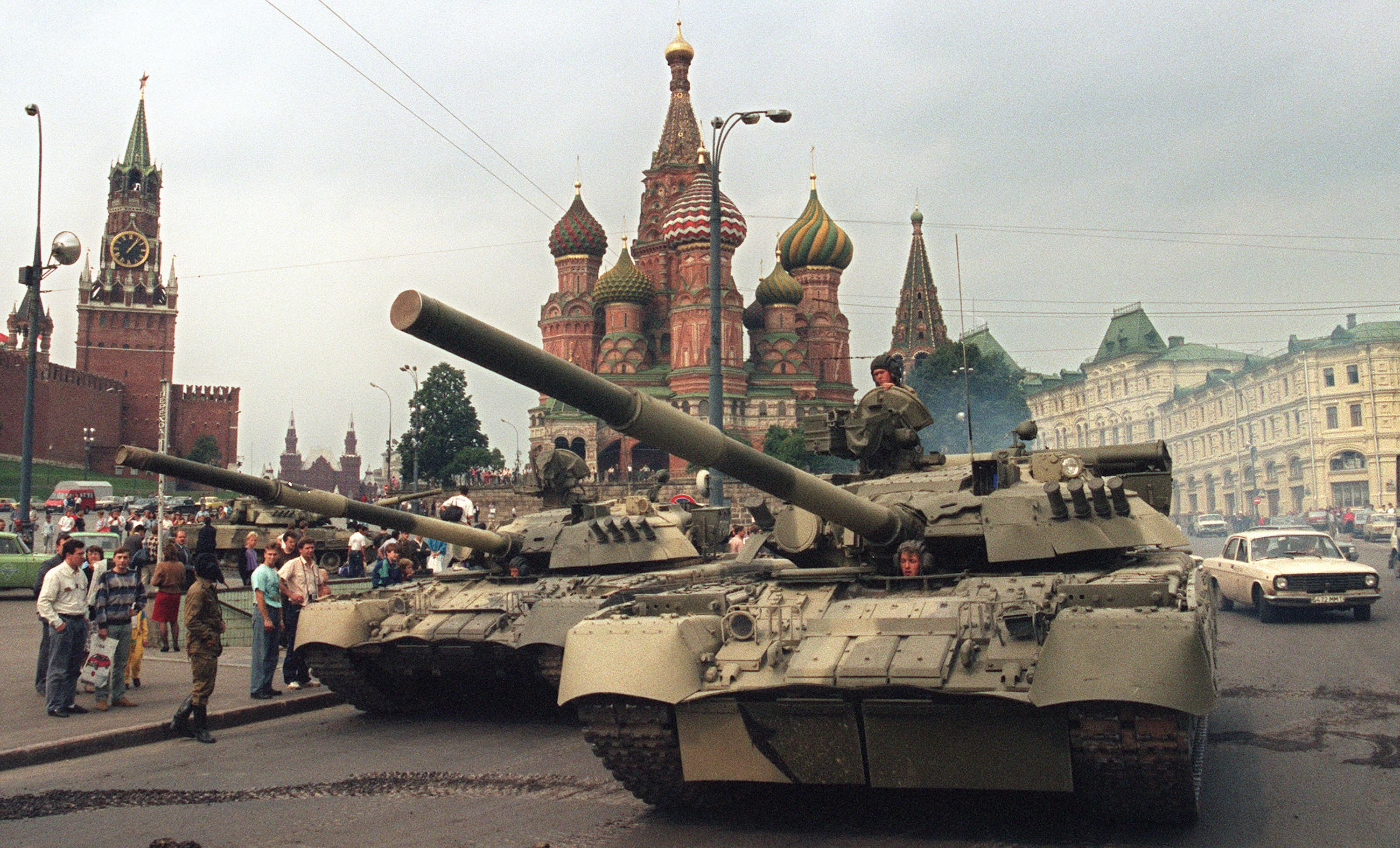
The photograph of him on the tank is instantly recognisable to everybody alive at the time, watching on television in the Soviet Union and around the world. Alongside him was scientist, human-rights activist and parliamentary deputy Mikhail Arutyanov. He remembers: “Yeltsin just said: ‘Let’s do this, let’s go’. And we marched out of parliament and climbed on the tank.”
Yeltsin also knew that if he was successful the political payout would likely be the vanquishing of Gorbachev. Backed by the support of western governments including US president George H Bush, his profile rose. French president Francois Mitterrand demanded the coup’s leaders “guarantee the life and liberty of Gorbachev and Yeltsin”, noting how momentum was swinging behind the latter. “I was there when Yeltsin spoke,” recalls Semenov. “I was transfixed. Our political leaders never talked to the people like that in those days. He seemed to be demanding the impossible.”
Impossible or not, Yeltsin succeeded. He was helped in no small measure by the fact that the conspirators had planned badly and their organisation was even worse. In their pronouncements they frequently sounded unsure and nervous: on the afternoon of 19 August Yanayev’s shaking hands as he explained Gorbachev’s “illness” to the nation led watchers to believe he was drunk. He may have been, apparently a lot of drink was consumed by the plotters as they argued over how to proceed – and it offered little reassurance to those watching that they were in control. Indecisive and fragmented, they argued among themselves and, despite recruiting military leaders, there was insurrection among many soldiers who privately, then publicly, backed Yeltsin. Certainly many defected following Yeltsin’s speech and in the face of demonstrations and strikes inspired by his rhetoric.
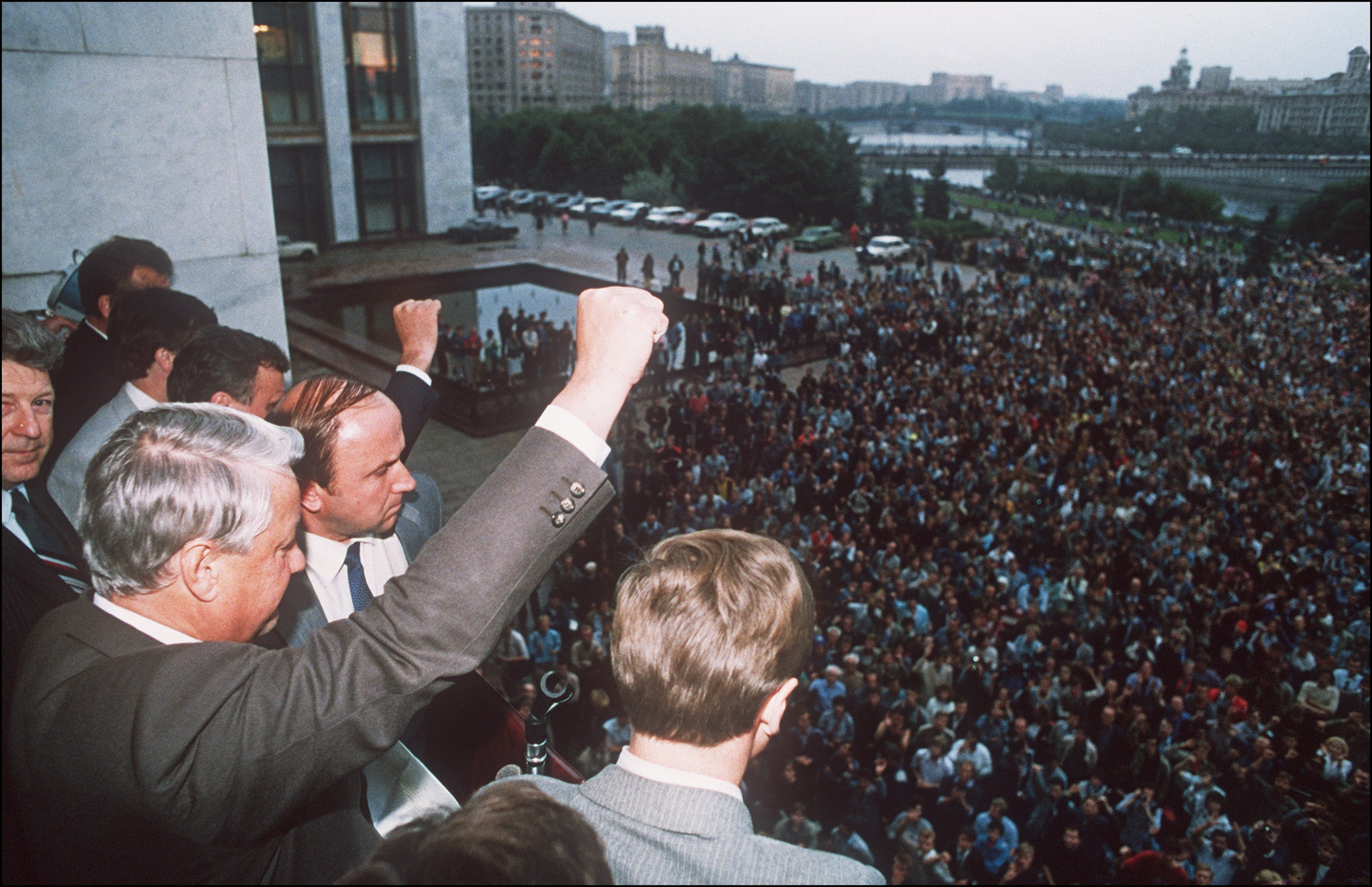
Perhaps the greatest error the conspirators made was demanding Russian soldiers move against Russian citizens. Soviet hegemony had been maintained previously by using Russian troops to quell insurrections among non-Russians in places such as Lithuania, Georgia and Azerbaijan. But now troops were questioning their loyalty to the Soviet government. Major Sergei Yevdokimov was in charge of the tanks surrounding the Russian parliament the night Yeltsin climbed aboard. After an hour of frantic discussions with demonstrators, Yevdokimov decided that “whatever order I received, I wasn’t going to shoot”. He was not alone. Plans to send in more military hardware to attack the politicians still holed up inside parliament petered out.
The plotters also misread and misunderstood the social and political changes wrought by the Gorbachev era, whatever they and the public thought of him. In the past, telling the population the general secretary was ill, broadcasting Swan Lake on television and ordering tanks on to the streets would have been met by resigned acquiescence from people who were unaware of, or indifferent to, the machinations of the state apparatus.
It was because of Yeltsin that events unfolded as they did. We sat down and agreed how things would be. Then when we’d parted to set in motion what we’d agreed, he began scheming behind my back. He’s a scoundrel and a traitor
Glasnost had ended that, the public was far more aware of the politics surrounding them: they had learned over recent years about their nation’s history, the purges, the pogroms, the actions of the KGB and of events such as Chernobyl. Under previous Soviet leaders Yeltsin would never have appeared live on television denouncing the coup. Now TV and radio stations were broadcasting actual events rather than being taken off air, despite the best efforts of the plotters. Printers continued to publish flyers explaining what was happening. Censorship, once a cornerstone of politburo authority, was no longer in the hands of the state, or, indeed, those who would wish to govern the state. Instead, people walked – and ran through and shouted on – the streets of Moscow aware of what was unfolding.
Former teacher Katya Hurskaya says: “After Gorbachev and glasnost I was teaching things I didn’t know had happened in my own country. I was as surprised as the children and their parents. We weren’t ignorant, we knew ‘things’ happened but to have them openly spoken of was a little bit exhilarating and a little bit disturbing. And then, on television, we had Yeltsin decrying the politburo…”
On 21 August, only three days after Gorbachev was visited at his dacha, the coup collapsed. A number of its architects, including Akhromeyer and Pugo, committed suicide, others were arrested. As coups go, it wasn’t especially deadly. Three civilians – Dmitry Komar, Ilya Krichevsky and Vladimir Usov – died on the streets of Moscow, killed by troops sent by Yazov as they attempted to block military vehicles entering the city. Gorbachev, on his return from Foros, made them posthumous Heroes of the Soviet Union and thousands attended their funerals. Their deaths, however, were significant insofar as the population heard of the killings, knew their names and were allowed to attend their funerals. This, perhaps more than anything, showed Gorbachev had been successful in changing Soviet society, however painful the reforms he forced through.
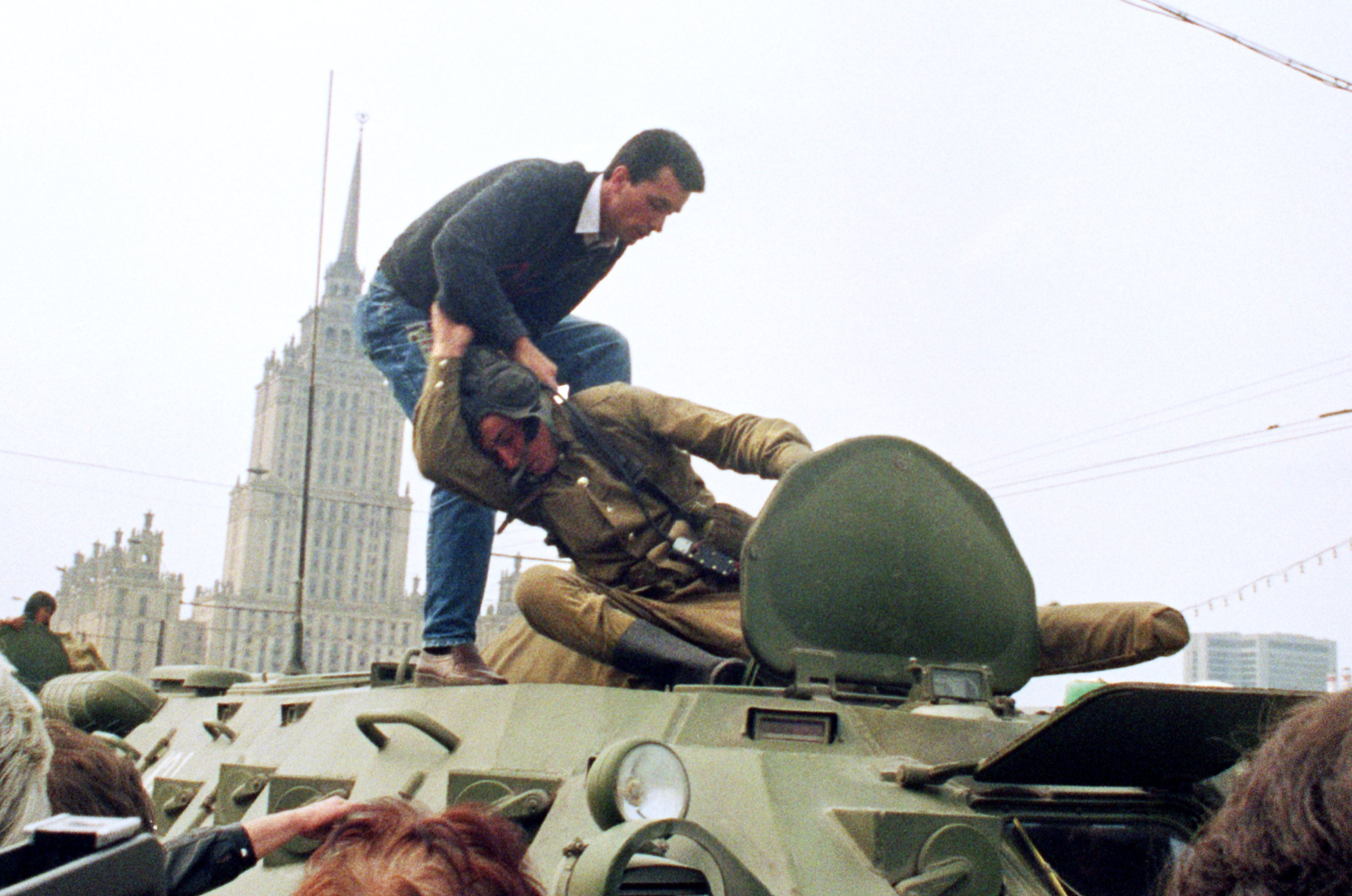
But his reign was coming to an end – its fragility exposed by the coup. The irony for the plotters, however, was that instead of reinforcing the Communist Party’s grip on the Soviet Union, it hastened its demise. The irony for Gorbachev was that his policy of glasnost, of openness, freed up Yeltsin to overcome the coup. The man who had renounced his party membership to oppose Gorbachev suddenly found his stock soaring. Gorbachev was back in Moscow but the momentum was with his saviour. Yeltsin asserted his right to rule Russia, and the leaders of other Soviet republics followed suit. The horizontal tricolour flag of Russia was seen on the streets for the first time in many years and became a symbol of opposition to the Soviet state.
Power now clearly resided with Yeltsin. As Gorbachev tried to reaffirm his commitment to liberalising communism, the Russian parliament jeered. And when Yeltsin forced him to read aloud on television documents that showed Gorbachev’s former allies had plotted his downfall he was humiliated. On 24 August, a mere three days after the coup ended, Gorbachev resigned as leader of the Soviet Communist Party. Five days later the Supreme Soviet dissolved the party itself. The Soviet republics began ceding from the union. On 25 December 1991 the red flag of the USSR was removed from the Kremlin to be replaced by the Russian flag. Yeltsin’s victory seemed complete. He may have been an opportunist, but he was a brave one. Of his moment and of his enemies, Yeltsin declared: “You can build a throne with bayonets, but you can’t sit on it for long”.
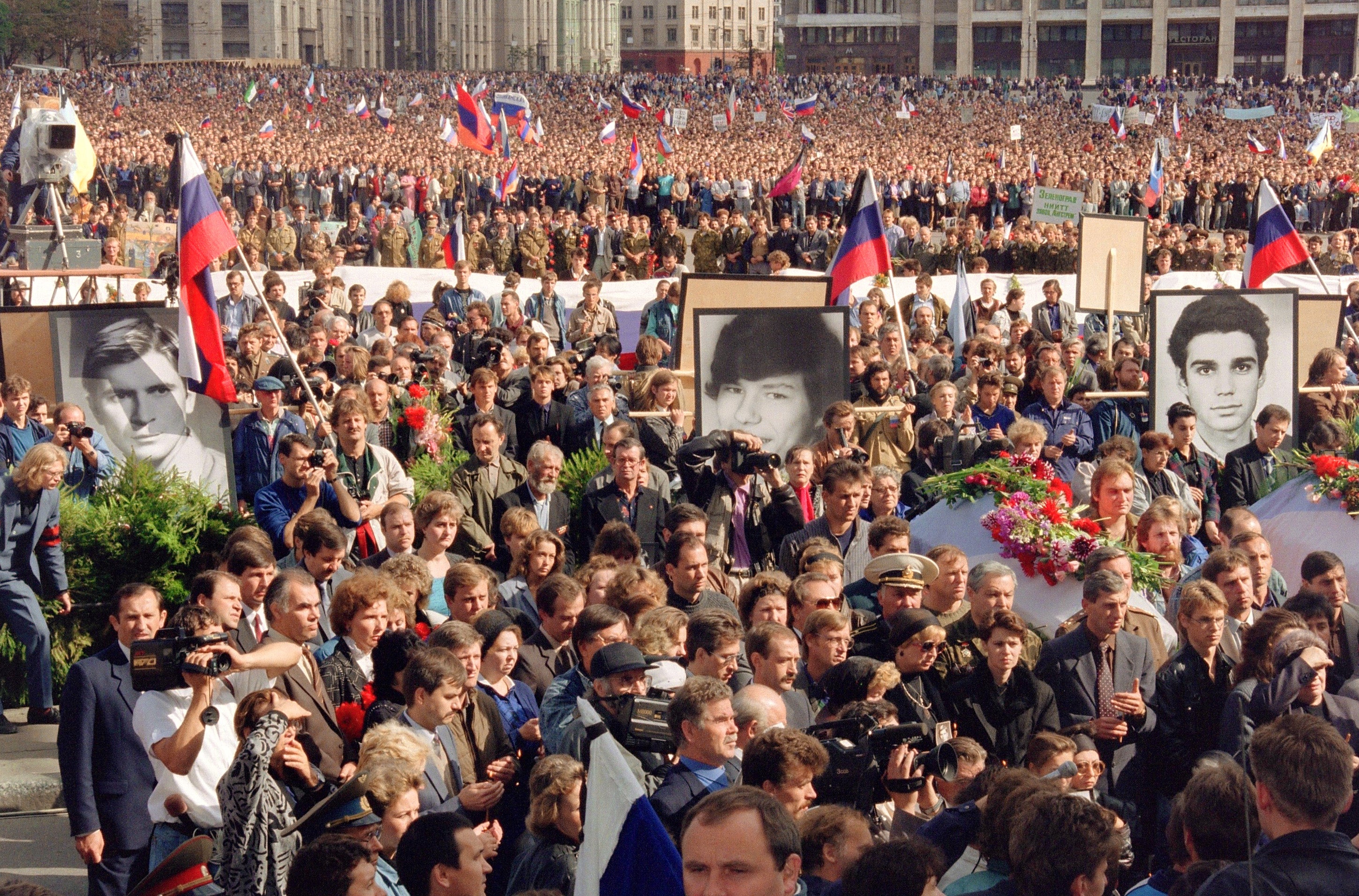
Of course, with Vladmir Putin now occupying the Kremlin and ruling in a manner more akin to the likes of Leonid Brezhnev than Mikhail Gorbachev are there lessons to be deduced from Yeltsin’s subsequent presidency of Russia? Did he, in some way, give rise to Putin? Did his tenure, marred by allegations of corruption and cronyism, inadvertently set the tone for what was to follow?
On the one hand it could be argued that no, following Yeltsin’s resignation Putin was democratically elected in the 2000 presidential election (although he was Yeltsin’s preferred candidate), despite protests of media manipulation from some quarters. What came later was cemented by the numerous constitutional reforms that saw Putin retain power in whatever guise.
On the other hand the rapid and capricious reforms initiated by Gorbachev and the continued shift to free market economics under Yeltsin had a created a vacuum, a proto-capitalist free-for-all which made some people very rich and the majority substantially poorer – the Russian oligarch of ill-repute was conceived amid the liberalising, almost libertarian, era that followed the demise of the Soviet Union. Yeltsin did little to stop the free-market rampage and indeed seemed to encourage it. Into that void – of unconstrained market liberalisation, unchecked corruption and, at best, democratic naivety – stepped Putin.
Let’s not forget this was the man who failed to emerge from his presidential plane at Shannon airport on a visit to Ireland after reputedly consuming copious amounts of vodka on the flight
Manfred Sapper, editor-in-chief of Osteuropa magazine in Germany, insists the merging of politics with oligarchy under Yeltsin created today’s Russia. “Oligarchs quickly controlled the media the state once dominated,” he says. “That put immense strain on Yeltsin and future politicians to conform to the media’s wishes. The two became interchangeable.” And while Putin may have tackled the oligarchs’ power by outflanking them with his own political appointments, the era of corruption they ushered in remained.
As for Gorbachev, he has never forgiven Yeltsin. In interviews with the BBC he had this to say: “It was because of Yeltsin that events unfolded as they did. This is an epic story with Boris Nikolayevich Yeltsin as its main character. We sat down and agreed how things would be. Then when we’d parted to set in motion what we’d agreed, he began scheming behind my back. He's a scoundrel and a traitor.” That’s pretty unequivocal.
Gorbachev’s biographer William Taubman has a fascinating take on the rivalry: “It’s a terrific Shakespearean conflict. They should have been allies with their different skills, but they turned themselves into enemies. Gorbachev played a role in creating Yeltsin as his nemesis, and Yeltsin paid him back in spades.”
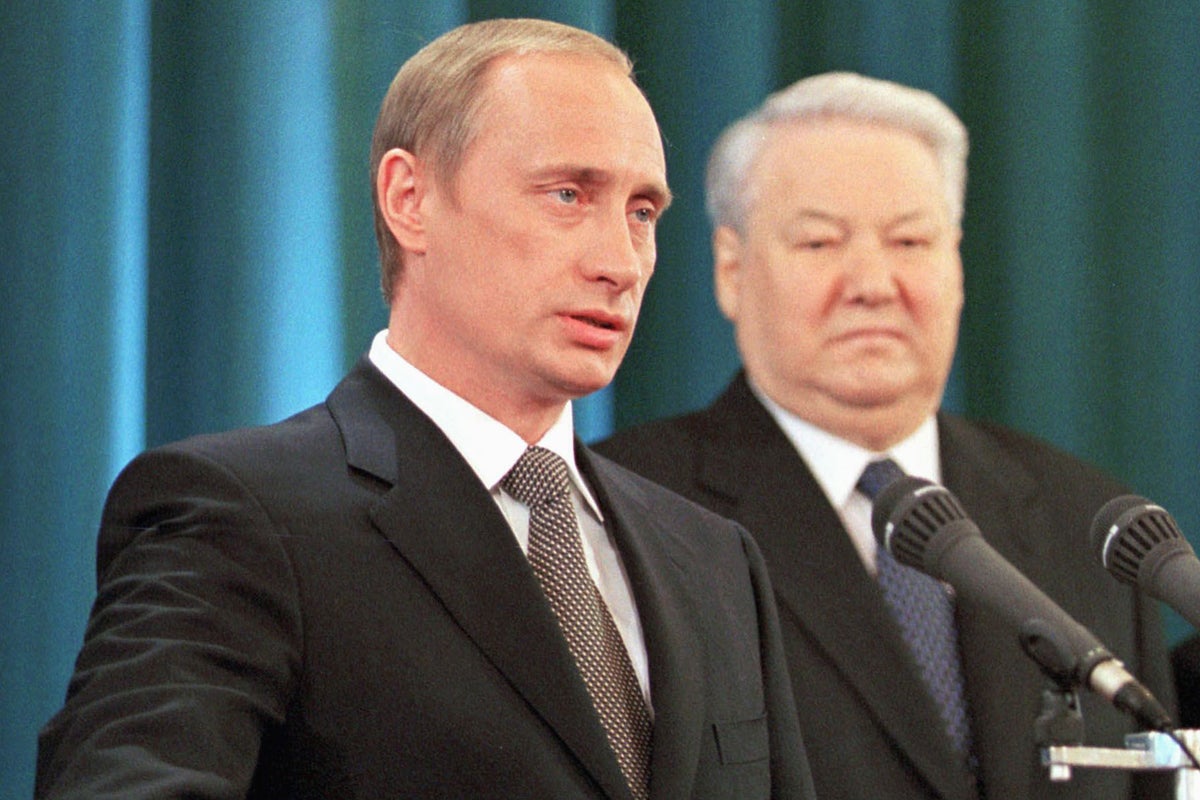
Others might disagree with Gorbachev. Former railway worker Sergei Moskvin speaks for a majority of Russians when he says: “Gorbachev is still popular abroad, but he wrought destruction back home. He should have known Soviet society would not withstand what he was doing to it, but either didn’t care or was too stupid to realise.” To others, Gorbachev seemed always prepared to compromise whereas Yeltsin did not, his speech from the tank being the prime example. Yeltsin’s close political confidante, Gennady Burbulis, says: “We wanted Russia’s burgeoning freedom to remain its core value, and human rights to be the centre of any strategic goal.”
But as with any political career, the burden of command can distort the ideals that launched it. Yeltsin’s intentions may have been laudable, at least initially, but freedom and democracy never truly flourished under his presidency. During Russia’s constitutional crisis of 1993 Yeltsin ordered tanks to fire on hardline rebel deputies occupying the Russian parliament. This time the orders were carried out. He refused to join any political party insisting it would taint his independence – a noble stance, but one that he sometimes appeared to think put him above the law. And the 1996 presidential election only went ahead when it appeared he could win. “I guess like all politicians, especially Russian ones, he somewhat reverted to type,” says Semenov.
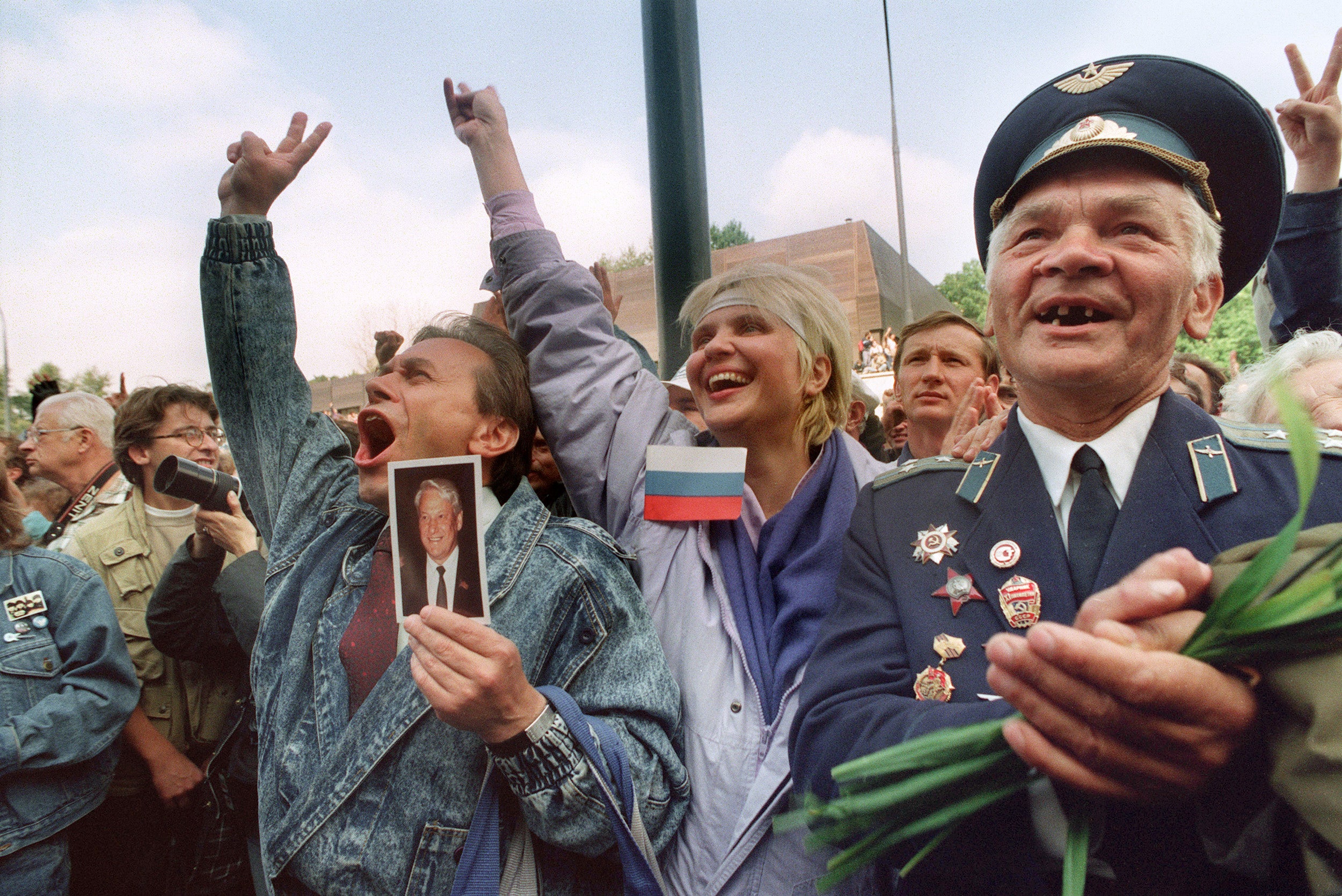
Russians have a philosophical concept known as Avos’. It has many forms. One of which manifests itself as an involuntary “there’s no point in doing anything because it will probably turn out bad anyway” attitude – a metaphysical shrug to unwitting destiny. Proof for many was that after centuries of imperialism in 1917 along came the Communist Party; there will always be an oppressive ruling elite in charge is its fatalistic interpretation. Whatever one might think of the Putin era that has followed Yeltsin, some Russians view their current government through the prism of Avos’ once again. Perhaps Yeltsin provided a tiny window through which they could perhaps see an alternative.
“Considering what has come after him, I have had to revise my opinion of Yeltsin,” says Alexei Sidorov, a human rights activist in Rostov-on-Don. “He stood up for his political rival even though he didn’t agree with him. What chance of Putin dong that? He’s more likely to imprison them.” Elena Sokolova, an office worker in Moscow, offers the alternative view: “Corruption was rife under Yeltsin and he used everything at his disposal to hang on to power. OK, his opponents are not treated as Putin’s are now, but I don’t doubt that if push came shove, he’d have done the same.”
It’s fair to say that Yeltsin’s flaws were despised by, and embarrassed, many of his compatriots. He had a healthy disregard for the law where it didn’t work in his favour, he launched the Chechen war of 1994, and he sold off Russia’s natural resources to the highest bidder or those he preferred. He also survived two counts of impeachment. And he liked his booze. Let’s not forget this was the man who failed to emerge from his presidential plane at Shannon airport on a visit to Ireland after reputedly consuming copious amounts of vodka on the flight. By the time he left office following his resignation at the end of 1999 his ratings were as low as 2 per cent and he apologised to the Russian people for “not making many of your and my dreams come true. What seemed simple to do proved to be excruciatingly difficult.” Not the words of a man who believed he had succeeded.
But in hindsight, can the case be made that Yeltsin’s tenure, at a pinch, and at its start as he stood on the tank while the world watched, could be described as a flickering beacon of something approaching liberal democracy, sandwiched between the hegemonic behemoth that was the Soviet Union and the malignancy of the Putin era that followed? Possibly.
Some names in this article have been changed




Join our commenting forum
Join thought-provoking conversations, follow other Independent readers and see their replies
Comments